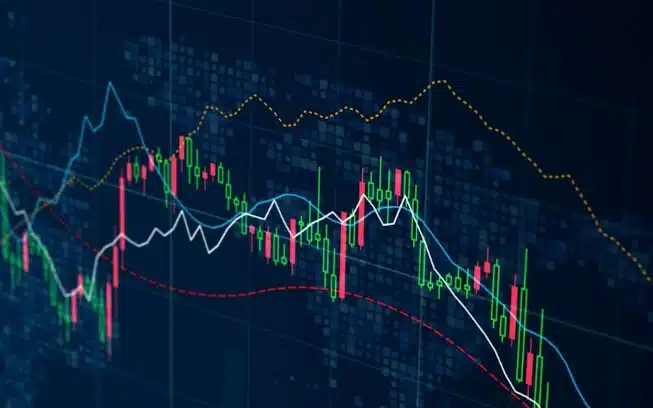Forex trading, short for foreign exchange trading, buys and sells currencies globally. This market operates 24 hours a day, five days a week, and is one of the world’s most liquid and largest financial markets.
One popular forex trading method is Contract for Difference, which allows traders to speculate on the cost movements of currency pairs without owning the actual currencies. This guide gives a comprehensive overview of forex trading for beginners, exploring its key concepts, benefits, and basic strategies.
What is Forex Trading?
Forex CFD trading involves exchanging one currency for another to make a profit. Trading occurs electronically over-the-counter (OTC) via computer networks between traders worldwide. The market is unique due to its size, liquidity, and continuous operation.
People in the forex market include banks, financial institutions, corporations, governments, and individual traders. The main objective is to profit from the fluctuations in currency values, which are affected by many factors such as economic data, geopolitical events, and market sentiment. By understanding these factors and how they impact currency prices, traders can make informed decisions and capitalize on market movements.
Forex trading is typically conducted through brokers who provide access to trading platforms. These platforms allow traders to view real-time price quotes, execute trades, and analyze market data. The basics of trading are essential for anyone looking to enter this market and succeed in making profitable trades. Critical Concepts in Forex Trading
Several key concepts form the foundation of forex trading, and understanding these is crucial for any beginner. The first concept is currency pairs. In the forex market, currencies such as EUR/USD or GBP/JPY are traded in pairs. Another critical concept is leverage. Leverage allows traders to control prominent positions with relatively small capital. While this can amplify profits, it also increases the risk of significant losses.
CFD trading is a method that uses leverage to allow people to speculate on currency price movements without owning the actual currencies. It can be advantageous due to its flexibility and potential for higher returns, but it needs a thorough knowledge of market dynamics and risk management.
Pips (percentage in points)are fundamental in forex trading. A pip is the smallest price move a given exchange rate can make related to market convention. For most currency pairs, a pip is equal to 0.0001. Understanding pips is vital for calculating potential profits and losses.
Benefits of Forex Trading Over Other Markets
It has several advantages over other financial methods, making it an attractive option for traders. One of the most significant benefits is the forex market’s high liquidity. Due to the large volume of transactions, people can enter and exit positions with low price slippage. This liquidity also means that the forex market is less susceptible to manipulation and provides more reliable price action.
Another advantage is the accessibility of the forex market. Contrary to stock markets with set trading hours, the market is available 24 hours a day, five days a week. This continuous operation allows traders to respond to market events in real-time and take advantage of trading options as they arise, regardless of their time zone.
Another critical benefit of forex trading is the use of leverage. As mentioned, leverage allows traders to control larger positions with less capital. This can lead to higher profits, although it also increases the risk of losses. Traders need to use leverage responsibly and implement effective risk management strategies.
It also offers many currency pairs to trade, providing opportunities to profit from various economic conditions worldwide. Trading different pairs can help diversify portfolios, help spread risk, and increase potential returns.
Understanding Forex Pairs and Spreads
Understanding spreads and how they affect trading costs is crucial in forex CFD trading. Traders should also be aware of other potential fees, such as overnight financing charges (swap rates), which can impact the profitability of longer-term trades. Essential Strategies for New Traders
For beginners, starting with simple and effective trading strategies can help build a solid foundation in forex trading. One popular strategy is trend following, which involves checking and trading in the direction of the market trend. This approach can be implemented using technical indicators, such as moving averages, to identify entry and exit points.
Another essential strategy is range trading, which involves identifying critical support and resistance levels and trading within the defined range. People can buy at the support level and sell at the resistance level, using the advantage of cost fluctuations within the range. This strategy benefits markets that lack a clear trend and exhibit sideways movement.
Forex trading offers a dynamic and accessible market for traders looking to profit from currency changes. Understanding the fundamental concepts, benefits, and strategies is essential for beginners to navigate this market successfully.
By leveraging tools like CFD trading, traders can amplify their potential returns while managing risks effectively—continuous learning and disciplined trading practices are critical to long-term success in the forex market. As traders gain experience, they can explore more advanced strategies and refine their approach to maximize their trading outcomes.




